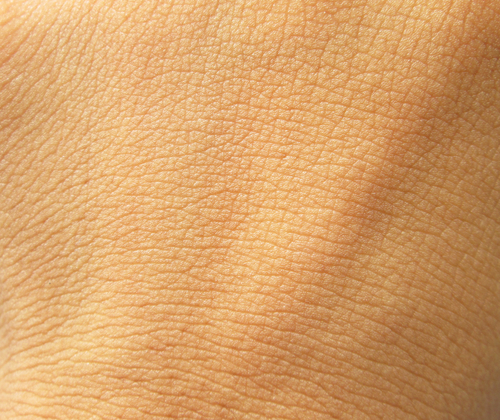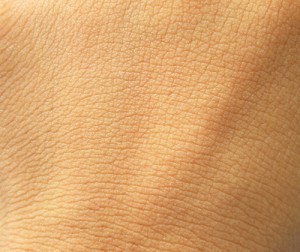Adiponectin May Prevent Skin Fibrosis in Systemic Sclerosis

 An international collaboration of researchers from the United States and China reported that adiponectin (APN), a protein that regulates glucose levels and fatty acid breakdown in the body, may be a naturally-occurring anti-fibrotic agent for systemic sclerosis (SSc). They presented their study at the 2014 American College of Rheumatology Meeting in November.
An international collaboration of researchers from the United States and China reported that adiponectin (APN), a protein that regulates glucose levels and fatty acid breakdown in the body, may be a naturally-occurring anti-fibrotic agent for systemic sclerosis (SSc). They presented their study at the 2014 American College of Rheumatology Meeting in November.
Systemic sclerosis is an autoimmune and connective tissue disease. It is an uncommon, chronic disorder in which skin degeneration and scarring occurs, causing accumulation of collagen (fibrosis). Damage to the joints, internal organs and blood vessel abnormalities — particularly damage to small arteries — may also be present in SSc. Although anti-fibrotic agents have been studied for the treatment of skin fibrosis in SSc, so far no agent has been shown to be consistently beneficial.
[adrotate group=”4″]
In this study, the scientists knew from prior research that levels of APN declines in SSc, and that damage to the skin corresponds with decreases in APN, since, as noted above, the protein normally functions as a blood sugar level regulator and helps break down fatty acids — the building blocks of fat.
To examine the role of APN in skin fibrosis, lead investigator, Feng Fang of the Division of Rheumatology in the Feinberg School of Medicine at Northwestern University in Chicago studied mice that were either genetically modified to have no APN or that produced an excessive amount of APN. They additionally studied whether synthetic forms of APN could affect skin fibrosis in human and mouse skin cells grown in a dish and in mice.
The research showed that mice that did not produce APN had excessive skin fibrosis when given bleomycin, a treatment that induces fibrosis. Remarkably, however, mice that produced extra APN were protected from the bleomycin-induced fibrosis. Treating cultured skin cells with synthetic APN suppressed signs of fibrosis, such as the production of collagen. When mice were given the synthetic forms of APN, it protected them from bleomycin-induced skin fibrosis and even reduced the fibrosis in mice that had already developed it.
[adrotate group=”3″]
The investigators concluded, “We identified an important homeostatic role for the adipocyte-derived cytokine APN in negative regulation of collagen deposition and myofibroblast accumulation, highlighting a novel link between metabolism and skin fibrosis. Restoring impaired APN signaling in SSc (scleroderma) using synthetic APN-derived peptides might therefore represent a pharmacological approach to fibrosis therapy.”
APN appears to be a major regulator of skin fibrosis in SSc, and increasing natural levels of APN could be used as a therapeutic treatment. Producing synthetic forms of APN may also underlie a strategy for the development of new medications to treat skin fibrosis. The researchers may further develop their forms of synthetic APN as new medications.







